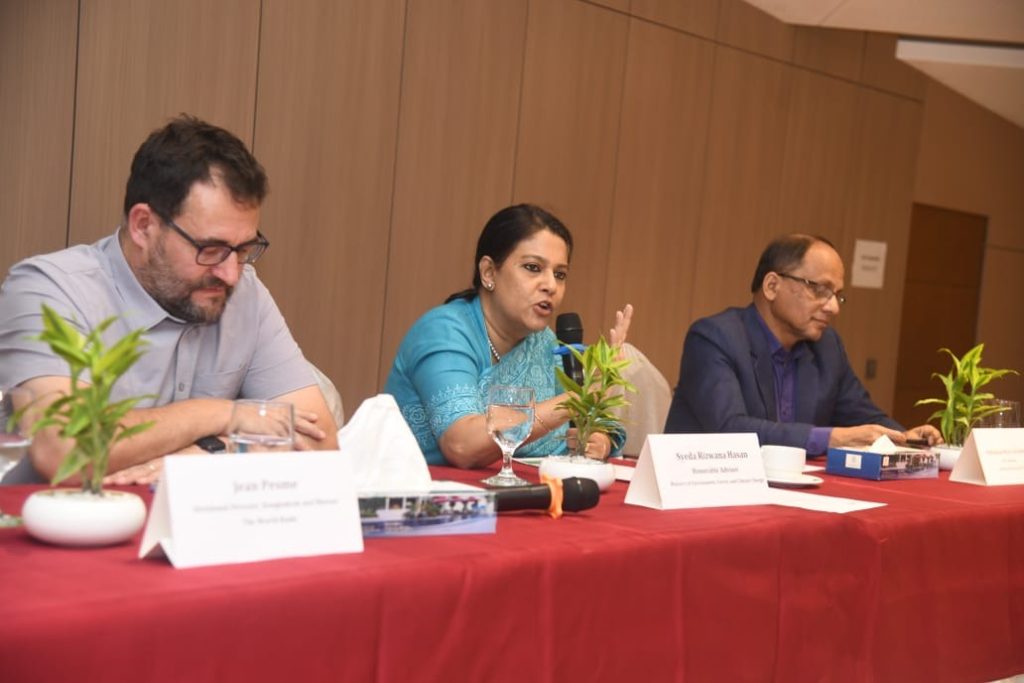Environment, Forest and Climate Change Adviser Syeda Rizwana Hasan has called for stronger enforcement mechanisms, greater transparency, and institutional accountability in environmental governance while urging an end to faulty clearance practices.
Addressing a seminar as chief guest, Rizwana, who also serves as Adviser to the Ministry of Water Resources, encouraged Department of Environment (DoE) officials to act with courage and innovation.
“Enforcement is not just about fines. It must include transparency, alternatives, and community empowerment,” she said.
The seminar, organised by the World Bank under the theme “Strengthening Environmental Regulatory and Enforcement Capacity for a Sustainable Bangladesh”, was held in Sreepur upazila, reads a press release from the ministry.
Highlighting enforcement priorities, the Adviser said focus should be placed on critical sectors such as dyeing industries, cement plants, and brick kilns.
“We must focus on the worst polluters with proper budgeting and planning. Publish the names of polluters online. With information accessible, citizens will support enforcement against political pressure,” she stressed.
She strongly objected to site clearances in environmentally sensitive zones. “Site clearances for waste dumping centres in flood flow zones are irresponsible and legally flawed. Even under political pressure, officials must send objection letters. If you cannot perform your duties, then be transferred – but do not compromise the environment,” she said.
The adviser further pushed for transparency in approval processes, calling on the DoE to make Environmental Impact Assessment (EIA) reports of all red-category industries available online, and to incorporate public objections into final decisions.
She also proposed digital complaint systems, development of a mobile app to monitor enforcement actions, and closer cooperation with local administrations to resist forest encroachment and illegal industrial practices.
World Bank’s Division Director for Bangladesh and Bhutan Jean Pesme, former Director General of the Anti-Corruption Commission and the National Museum of Science and Technology Muhammad Munir Chowdhury, Gazipur Deputy Commissioner Nafisa Arefin, BEST Project Director AKM Rafiqul Islam, and World Bank Bangladesh Environment Specialist Bushra Nishat also spoke on the occasion.
At the conclusion, the adviser handed over certificates to outstanding trainees and participants, urging them to remain steadfast in protecting Bangladesh’s environment for the generations to come.


